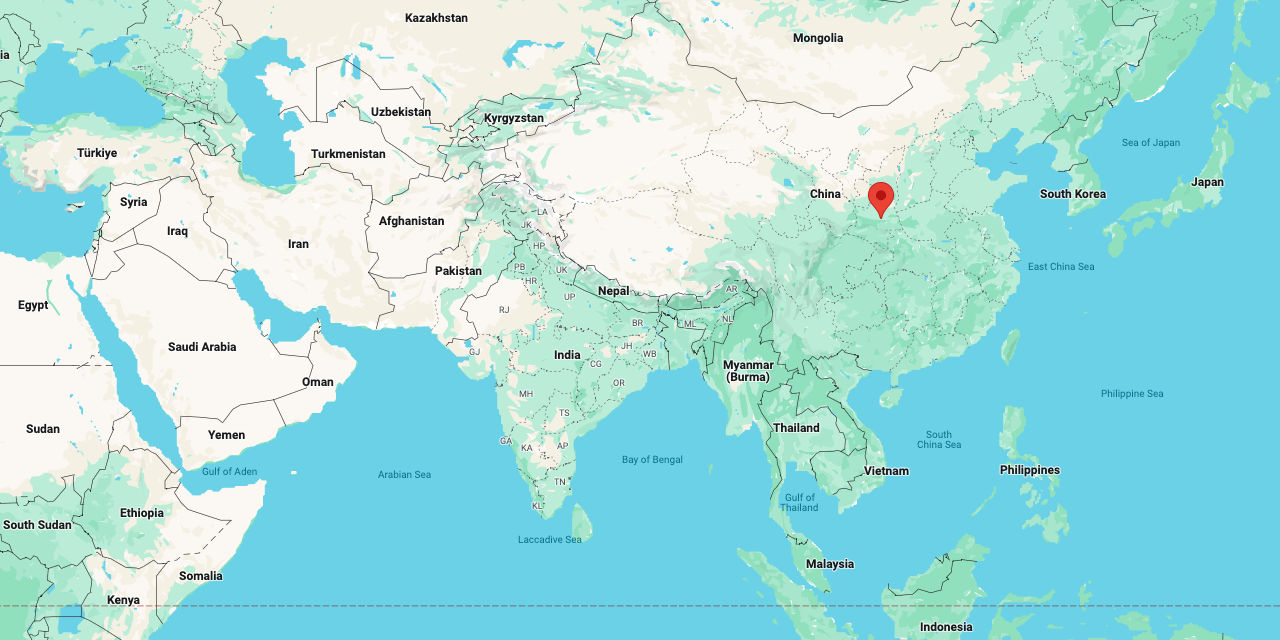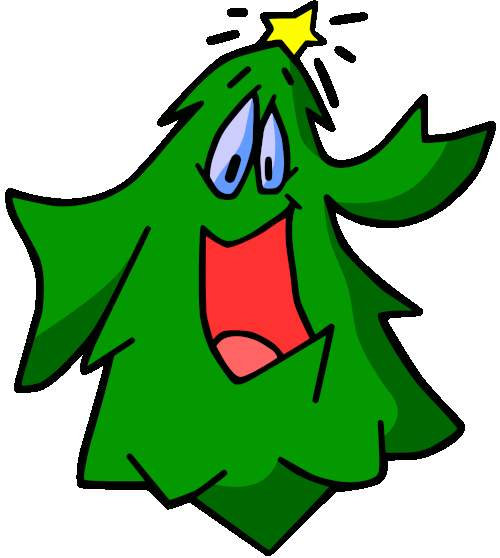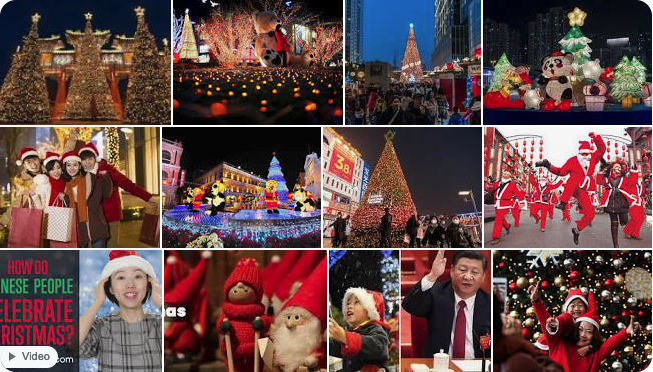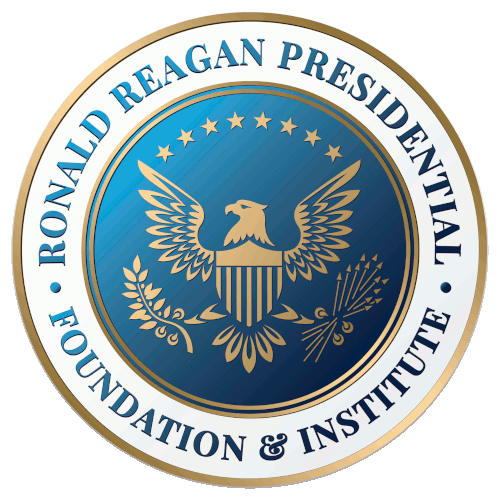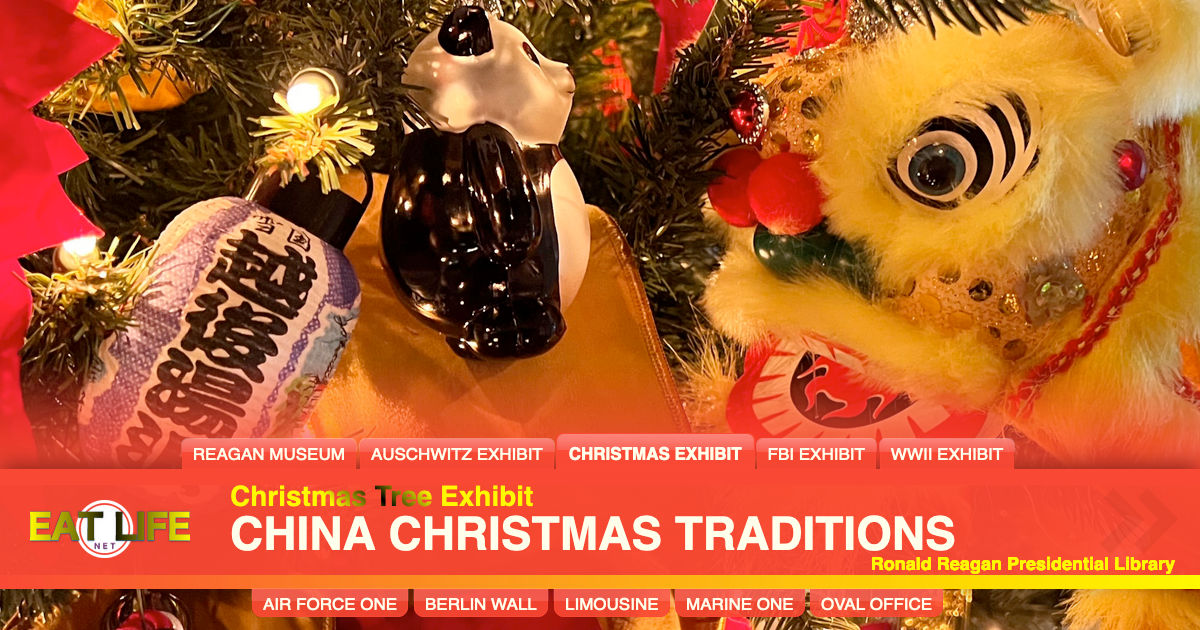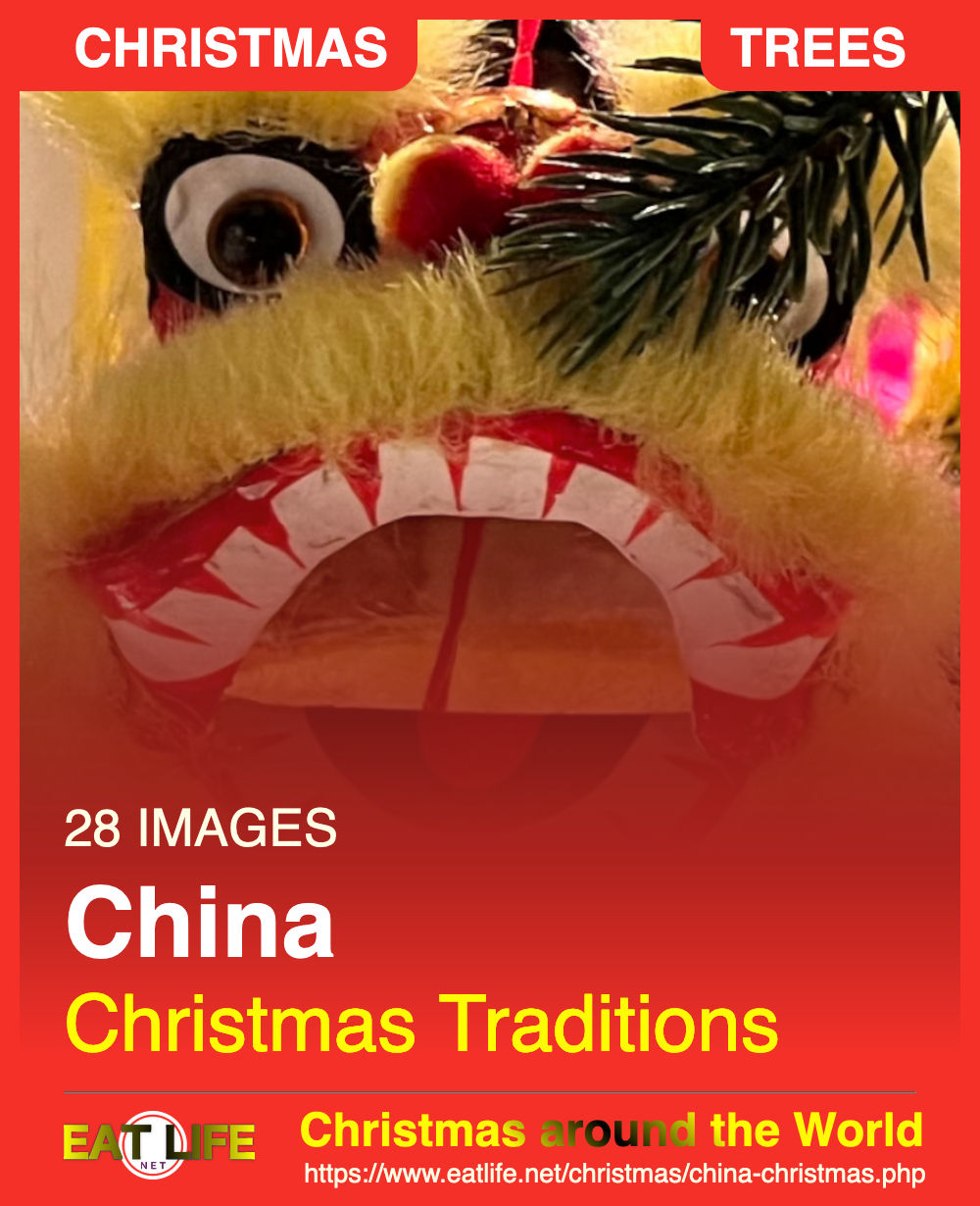CHINESE CHRISTMAS


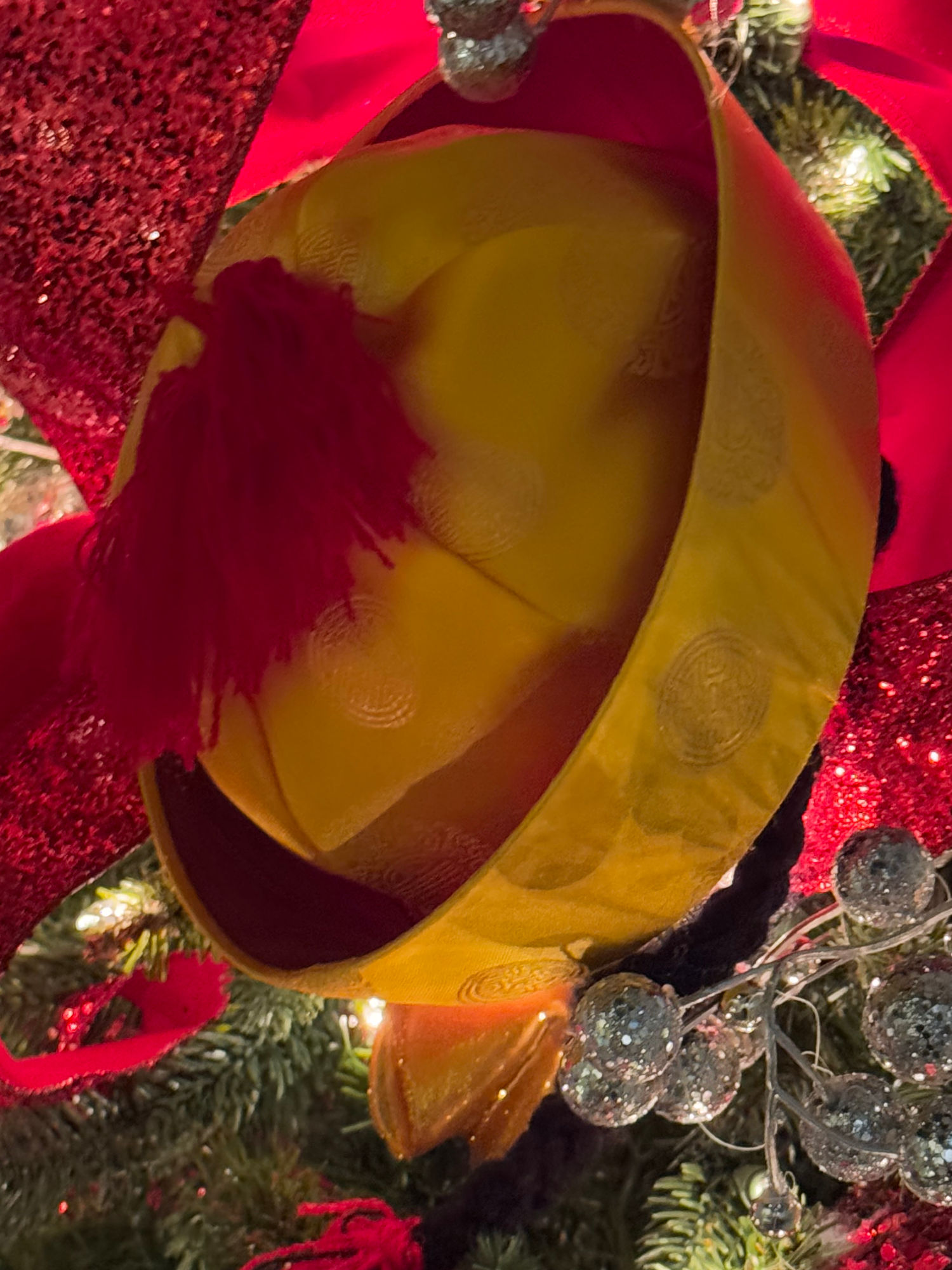
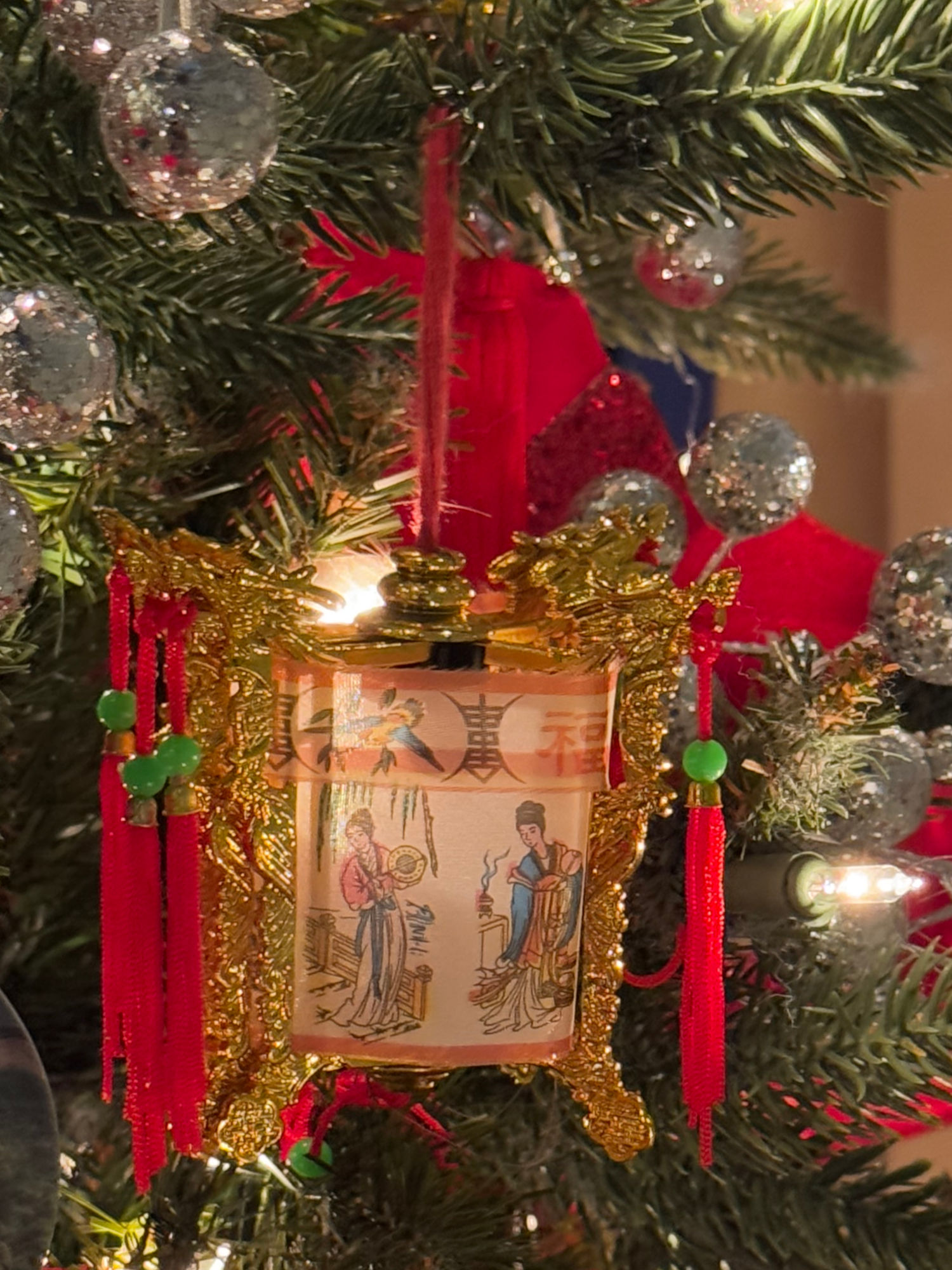
| HOW TO SAY MERRY CHRISTMAS: | |
|---|---|
| In Chinese | Shengdan jie kuaile |
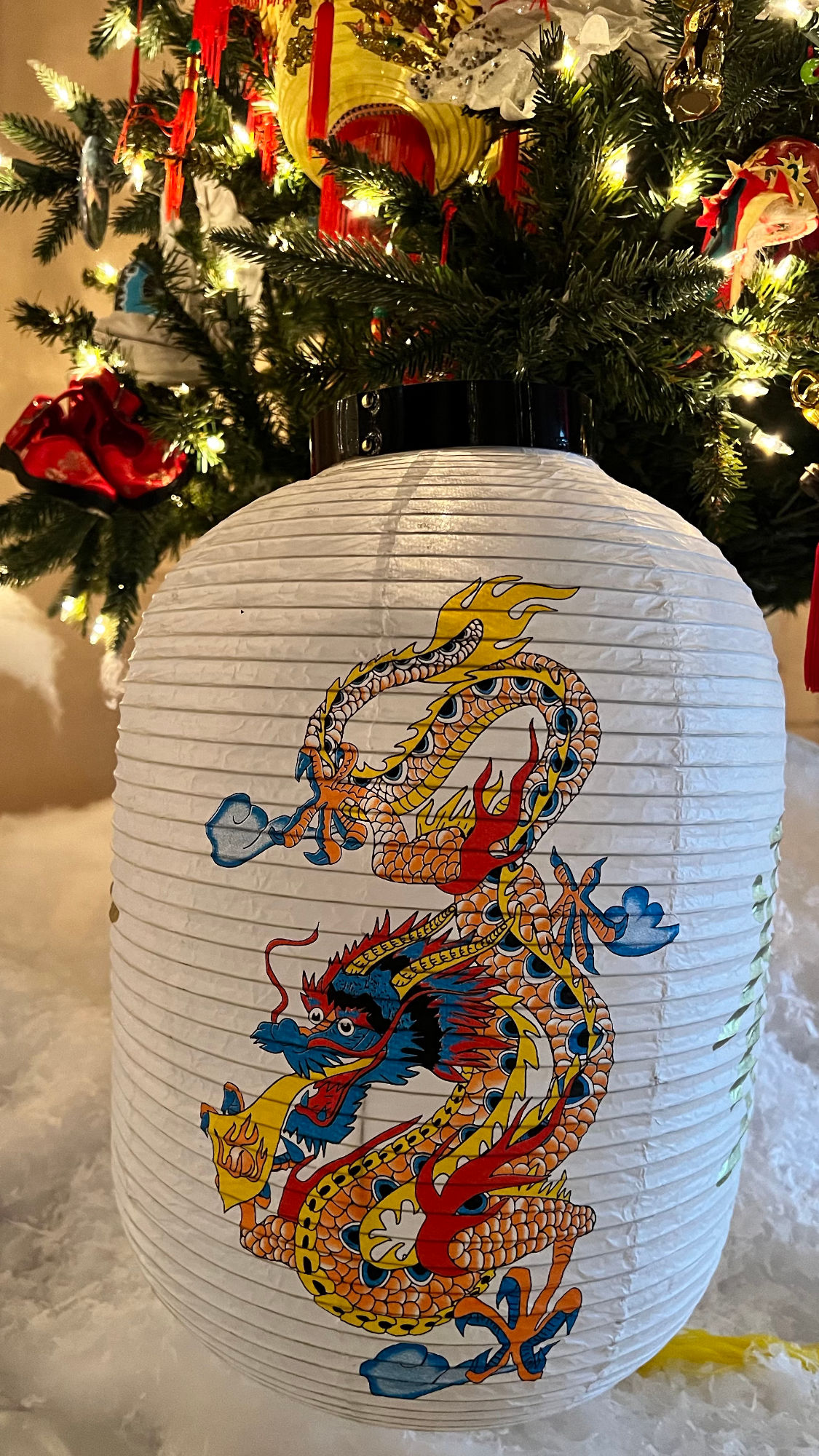
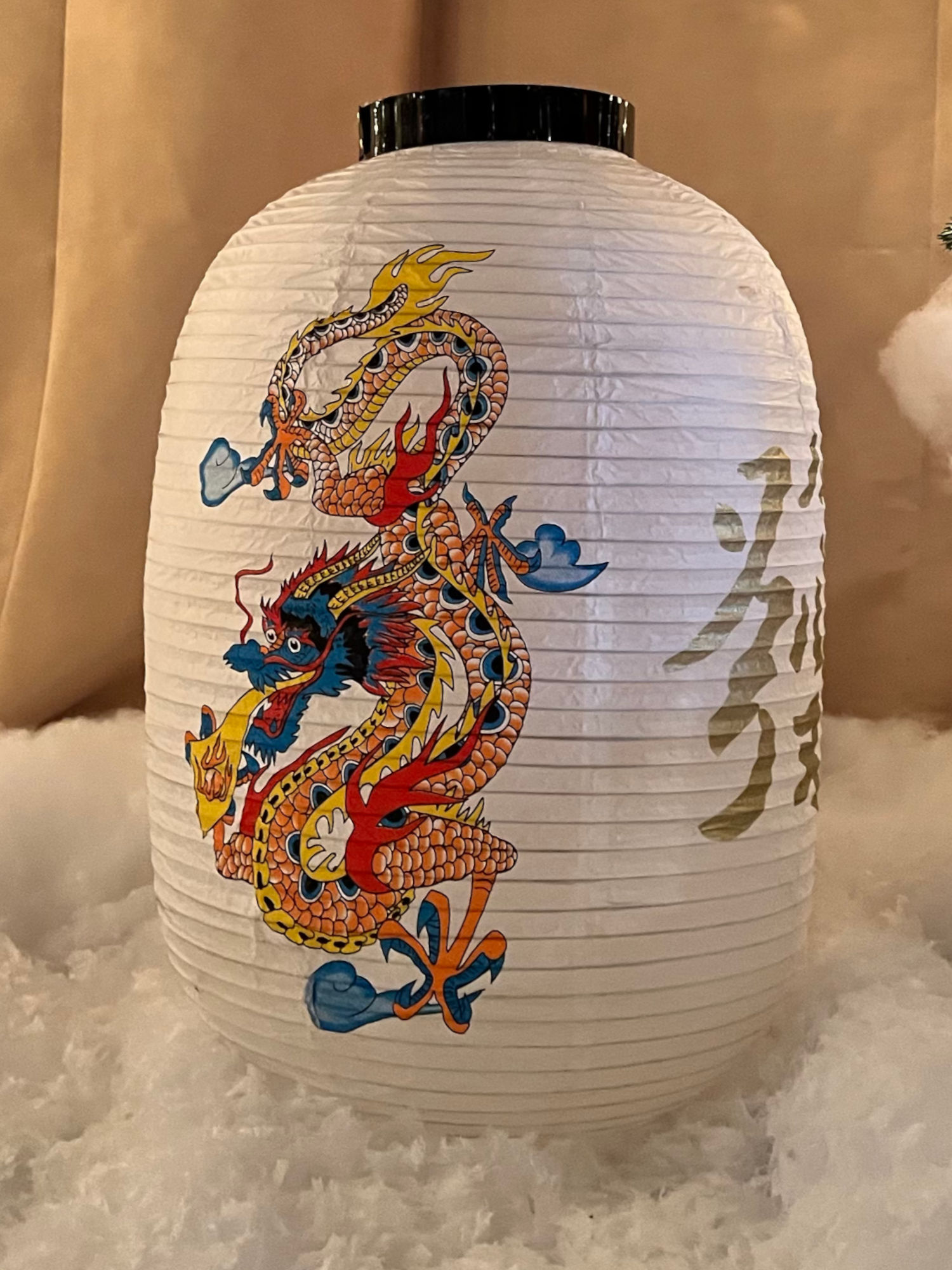

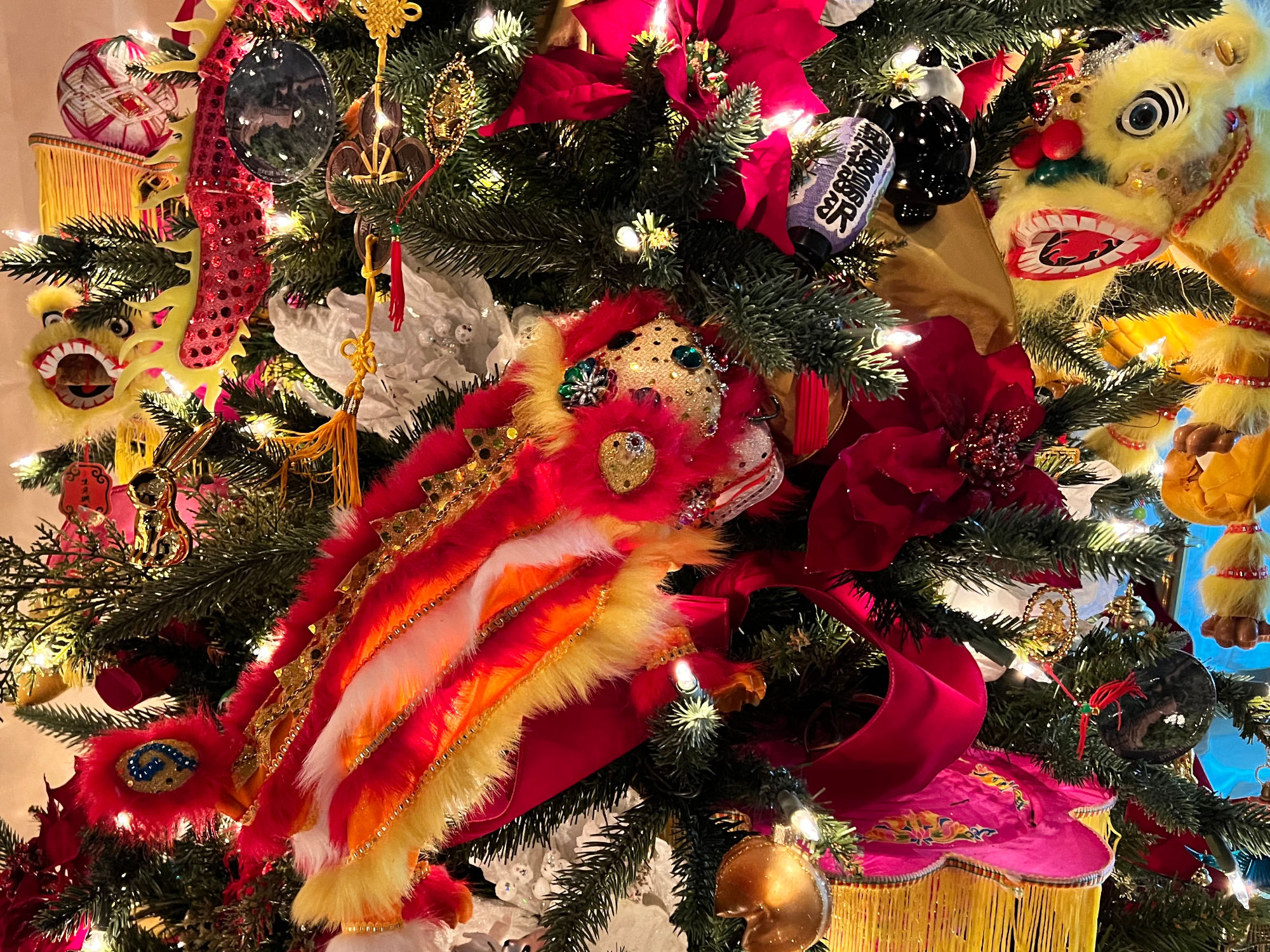

WHYCHRISTMAS.COMChristmas in China
In China, only about one percent of people are Christians, so most people only know a few things about Christmas. Because of this, Christmas is only often celebrated in major cities. In these big cities there are Christmas Trees, lights and other decorations on the streets and in department stores. Santa Claus is called 'Shengdan Laoren' (old Christmas Man) and has grottos in shops like in Europe and America. The post men might dress up as Santa when delivering letters before Christmas!More young people are celebrating Christmas in cities where Christmas parties are becoming popular and it's also a time where young couples will be gifts for each other, a bit like Valentine's day.
- In Chinese Happy/Merry Christmas is 'Sheng Dan Kuai Le in Mandarin and 'Seng Dan Fai Lok in Cantonese. Happy/Merry Christmas in lots more languages.
- In China, Santa is known as 'Sheng dan lao ren' (means Old Christmas Man).
- Only a few people have a Christmas Tree. If people do have a tree it is normally a plastic one and might be decorated with paper chains, paper flowers, and paper lanterns (they might also call it a tree of light). The Christmas Trees that most people would see would be in shopping malls.
- The strange thing is that most of the world's plastic Christmas Trees and Christmas decorations are made in China, but the people making them might not have decorations like them in their own homes at Christmas!
- A tradition that's becoming popular, on Christmas Eve, is giving apples. Many stores have apples wrapped up in colored paper for sale. People give apples on Christmas Eve because in Chinese Christmas Eve is called "Ping'an Ye", meaning peaceful or quiet evening, which has been translated from the carol 'Silent Night'. The word for apple in Mandarin is "pingguo" which sounds like the word for peace.
- Some people go Carol singing, although not many people understand them or know about the Christmas Story. Jingle Bells is a popular Christmas song in China!
- People who are Christians in China go to special services. Going to Midnight Mass services has become very popular.
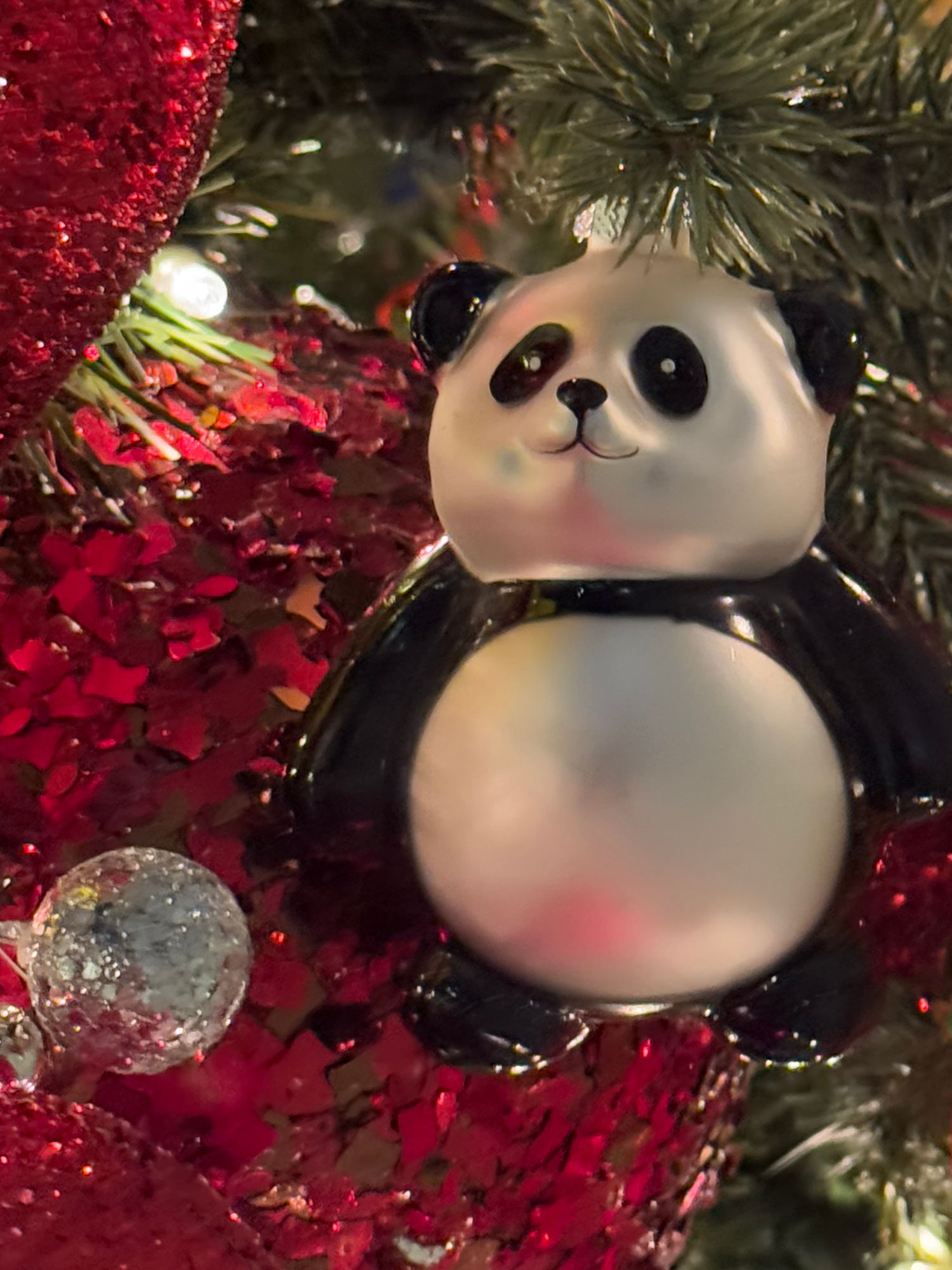
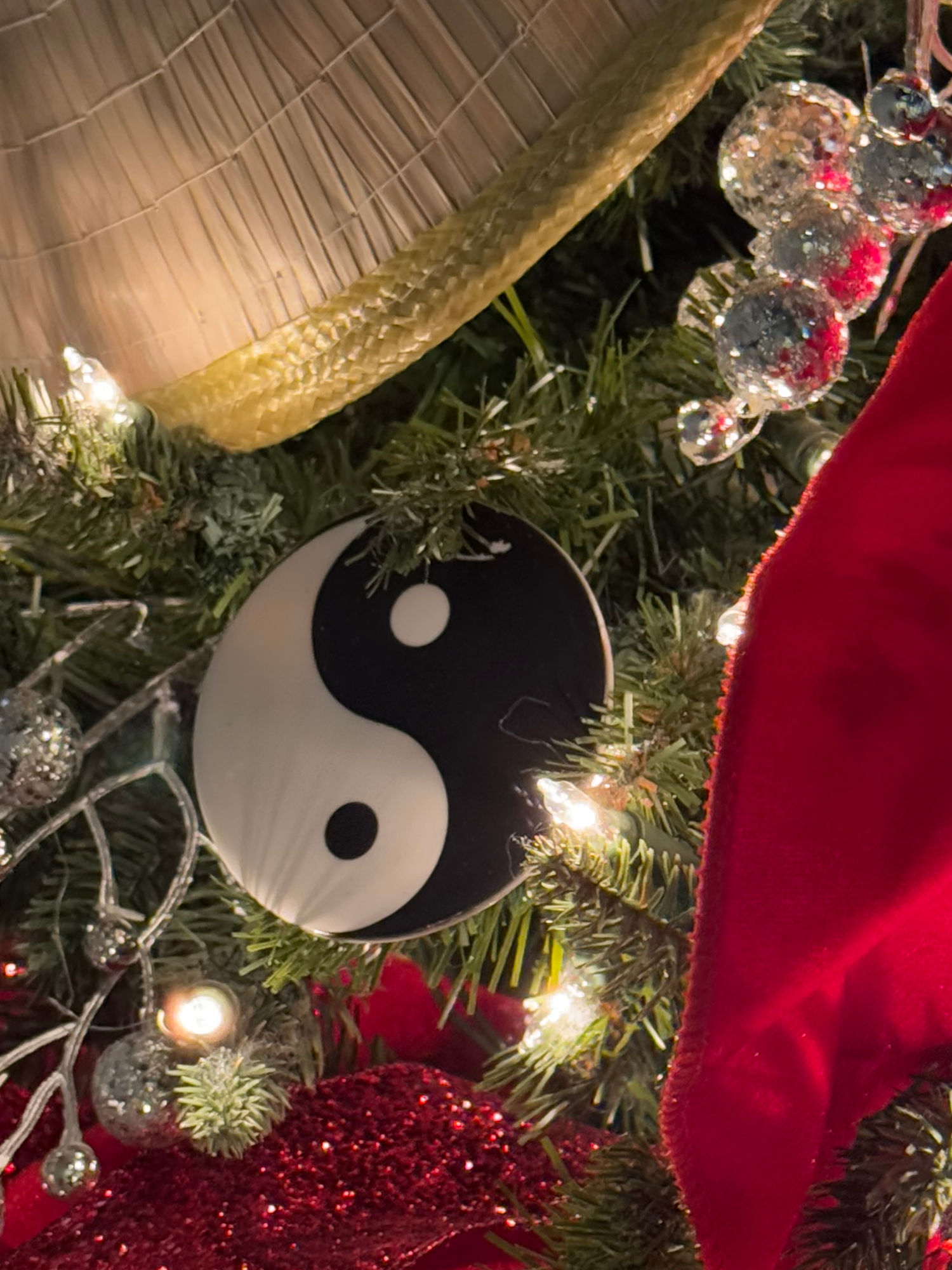



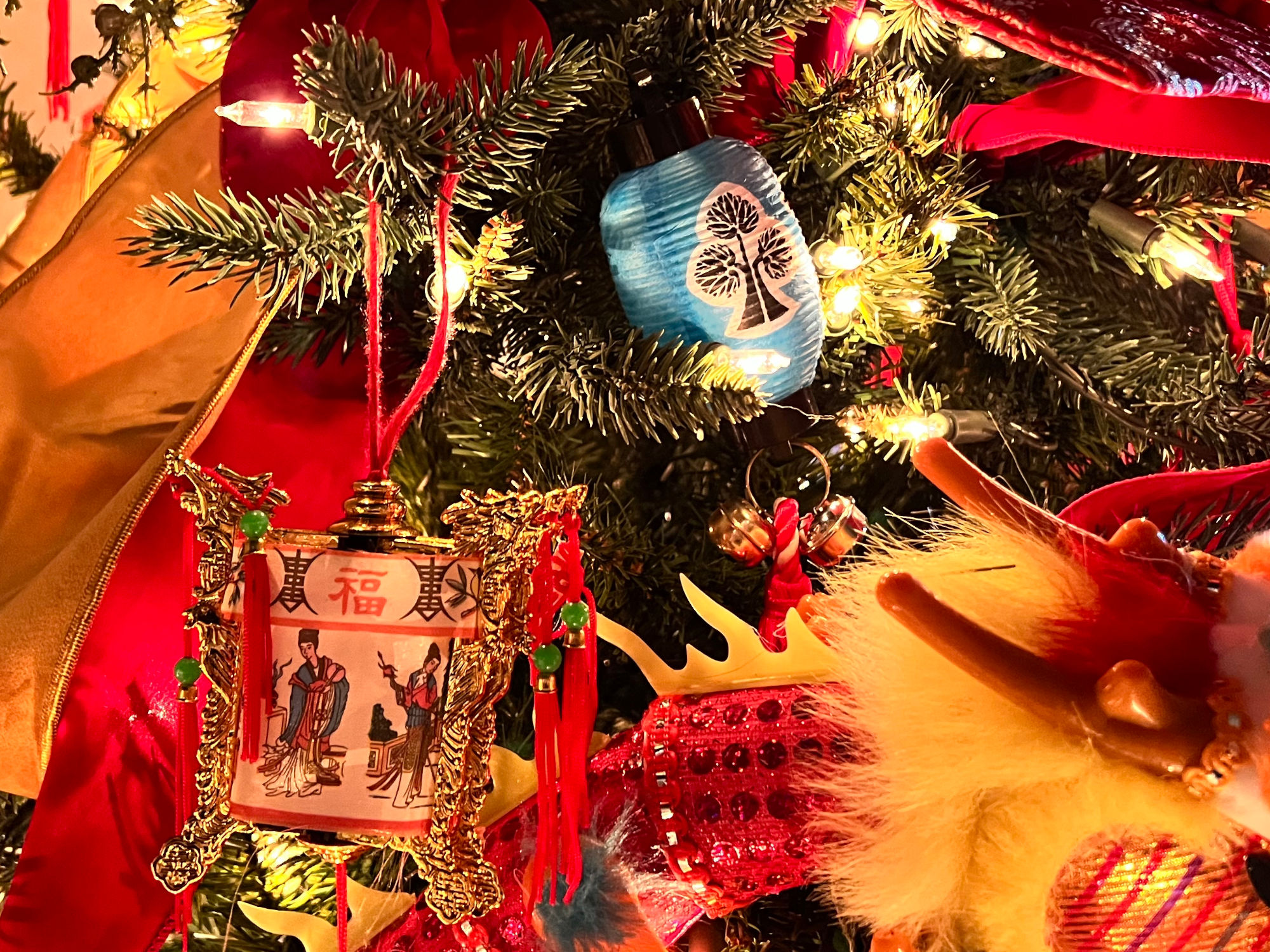
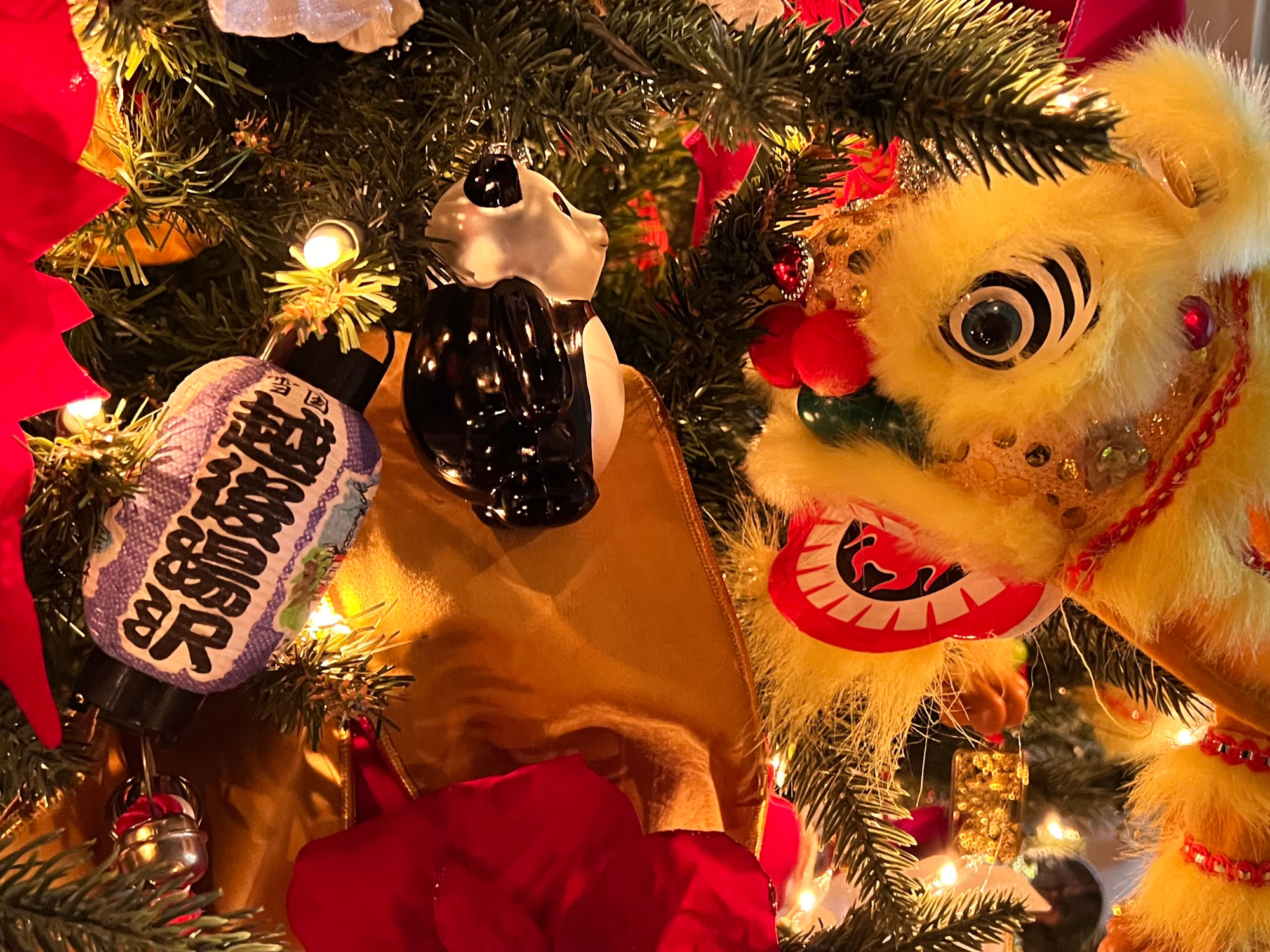
HOW STUFF WORKSChristmas Traditions in China
The small number of Christians in China call Christmas Sheng Dan Jieh, which means Holy Birth Festival. They decorate their homes with evergreens, posters, and bright paper chains. The family puts up a Christmas tree, called "tree of light," and decorates it with beautiful lanterns, flowers, and red paper chains that symbolize happiness. They cut out red pagodas to paste on the windows, and they light their houses with paper lanterns, too.Many Chinese enjoy the fun and color that Christmas brings to the drab winter season. Big cities like Beijing, Shanghai, and Hong Kong are gaily decorated at Christmas.
Many people give parties on Christmas Eve, and some people enjoy a big Christmas dinner at a restaurant. Shops sell plastic trees and Christmas decorations for everyone to enjoy, and Santa Claus is a popular good-luck figure.
The Christmas season is ushered in with fireworks. Jugglers and acrobats entertain, and people enjoy the merriment and feasting. In Hong Kong, which recently was restored to Chinese rule, Christmas Day is just one of seventeen public holidays.
At this time of year, people in Hong Kong also celebrate Ta Chiu, a festival of peace and renewal, by making offerings to saints and reading the names of everyone who lives in the area.
On Christmas Eve, Christian children in China hang up their muslin stockings that are specially made so Dun Che Lao Ren, or "Christmas Old Man," can fill them with wonderful gifts. Santa Claus may also be called Lan Khoong-Khoong, "Nice Old Father."
The Chinese lunar New Year, or Spring Festival, begins in late January or early February. The celebration lasts for three days. While not part of Christmas, the New Year is the most important celebration of the year for the Chinese people. People travel long distances to be with their families. They decorate their homes with brightly colored banners. These banners carry messages of good wishes for the coming year.
Many people exchange gifts at the New Year. Following tradition, very expensive, special presents are given only to close family members. Token gifts are given to friends and distant relations. Children especially enjoy their gifts of new shoes and hats.
People put on new clothes for the New Year celebration. They prepare many special holiday dishes, and families come together at one house to enjoy them. The younger sons of the household serve dinner to the head of the household.
For the first celebration, on New Year's Day, people offer rice, vegetables, tea, and wine to heaven and earth. They burn incense and candles to pay tribute to their ancestors and to all living members of the family.
Chinese families turn out to watch the spectacular New Year's fireworks displays and the exciting lion dance. Several performers dance inside an enormous costume. They make the "lion" walk, slither, glide, leap, and crouch along the street as it leads a colorful procession.
The greatest spectacle takes place at the Feast of the Lanterns, when everyone lights at least one lantern for the occasion. Other special events of the New Year include the Festival of the Dragons and the Fisherman's Festival.
Throughout the three days of New Year's celebrations, everyone speaks only cheerful words to each other so they will have good luck in the coming year.
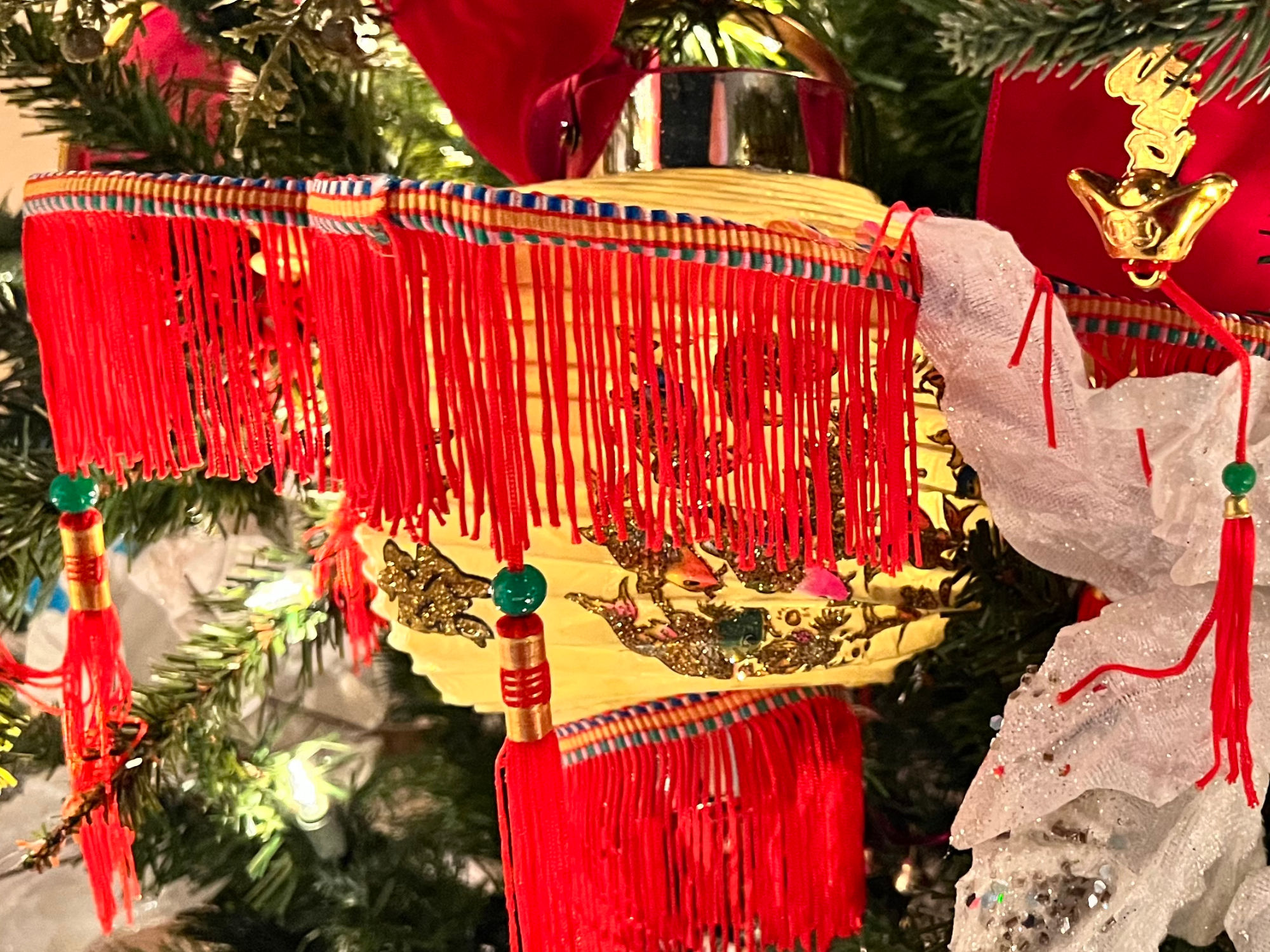
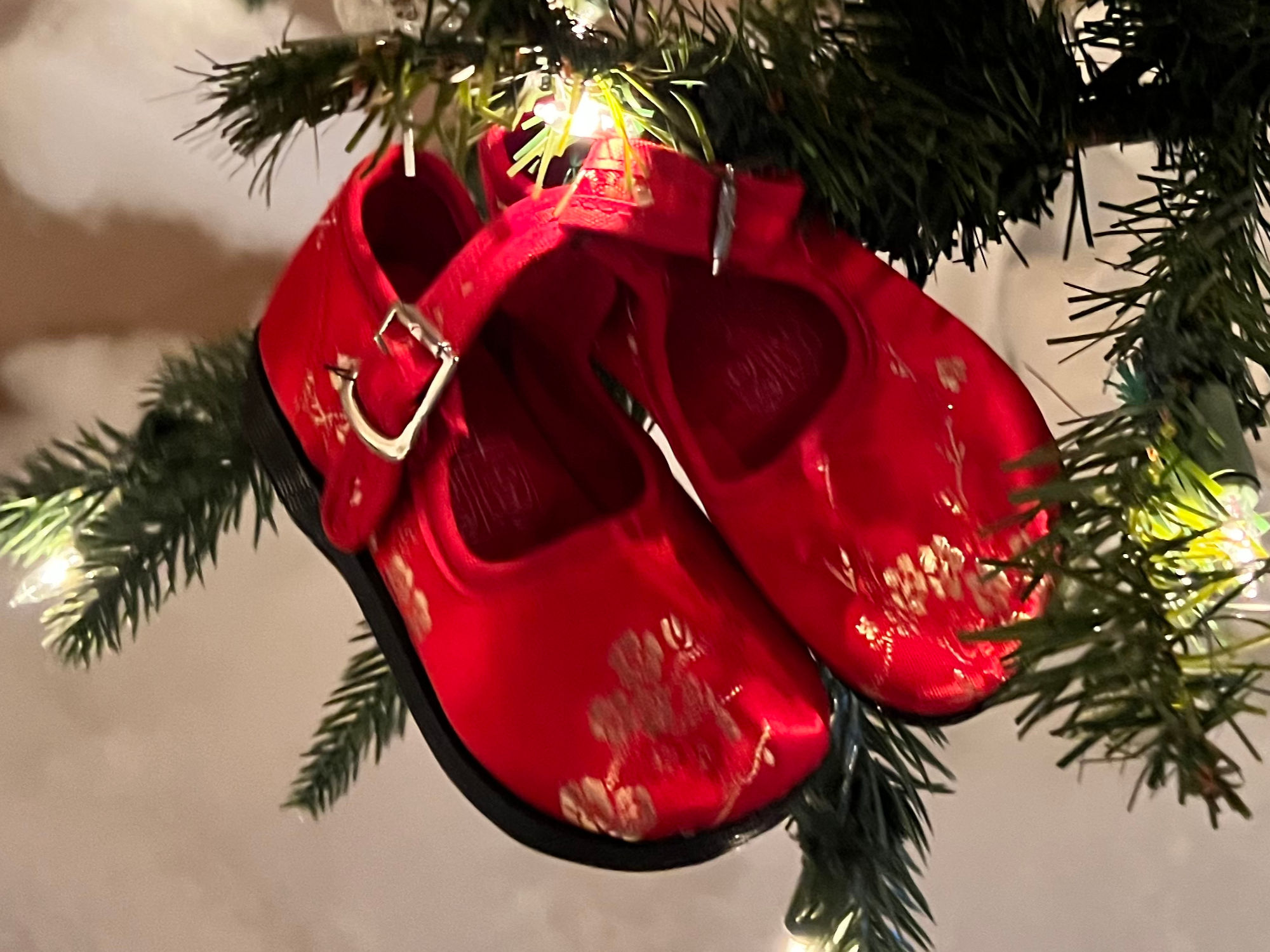
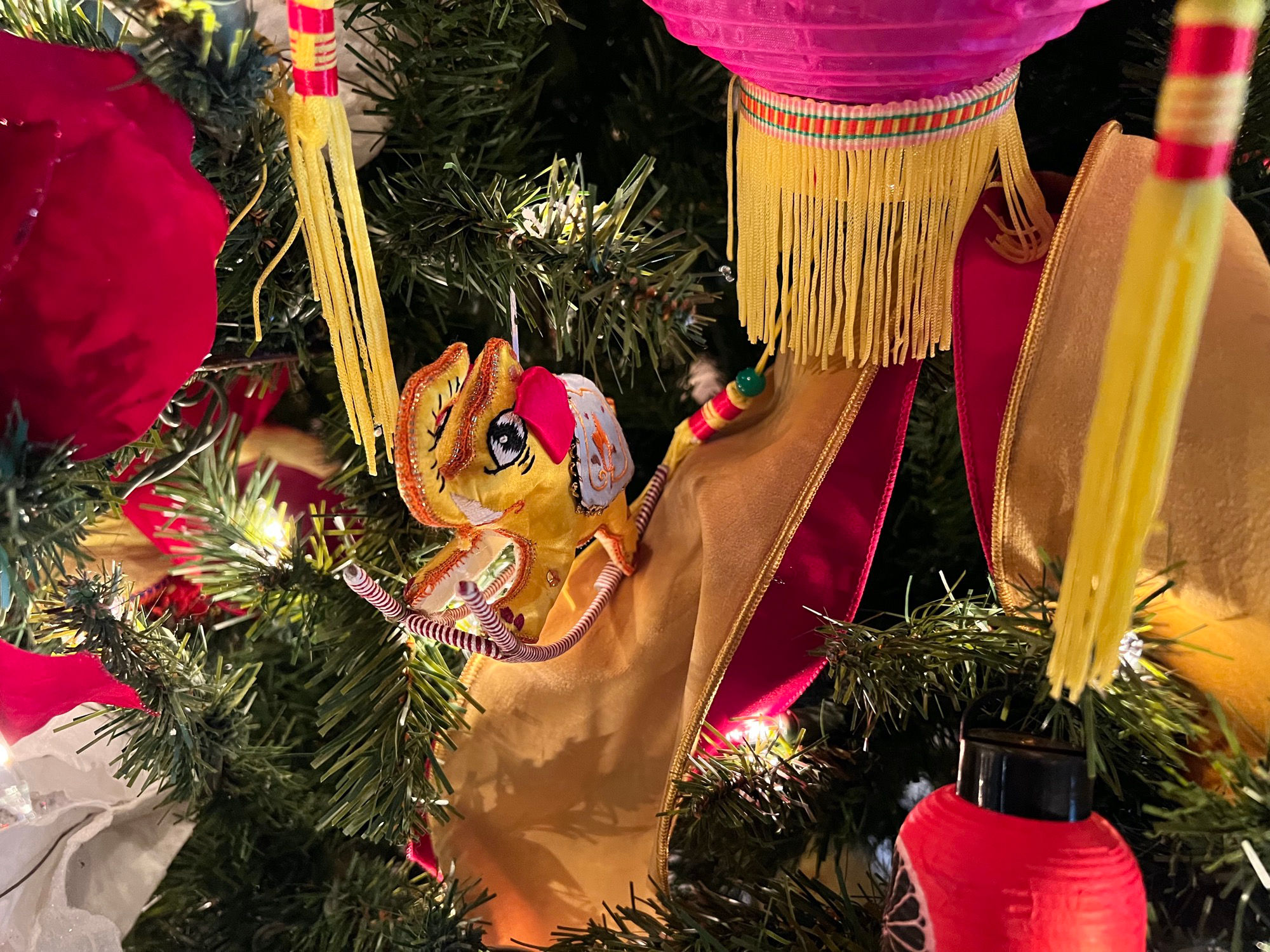


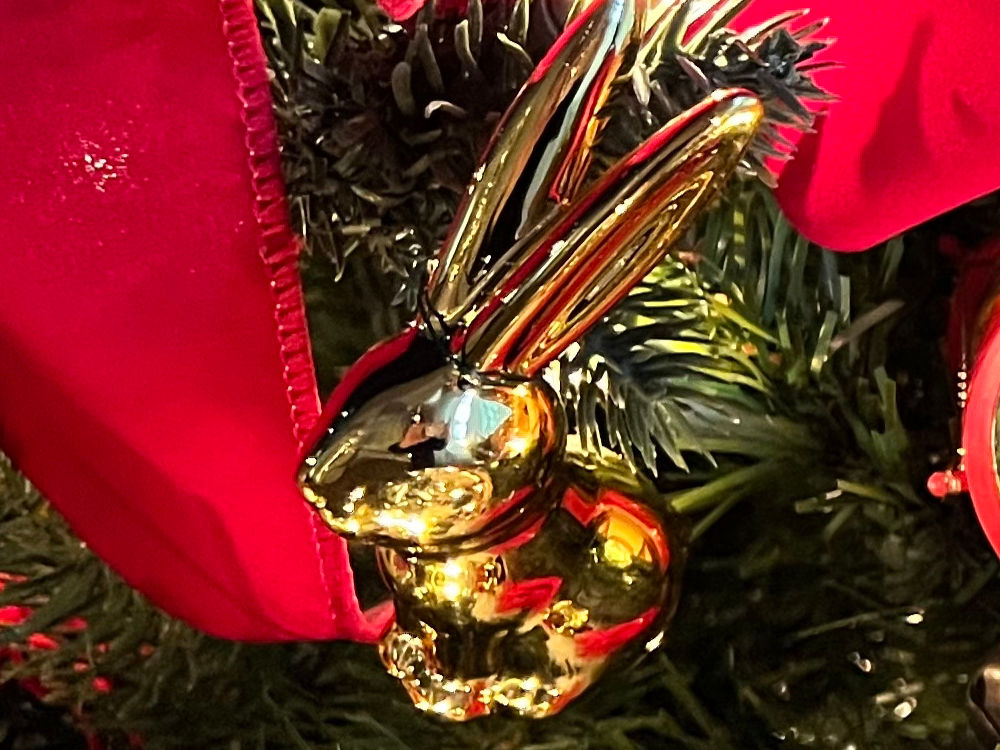
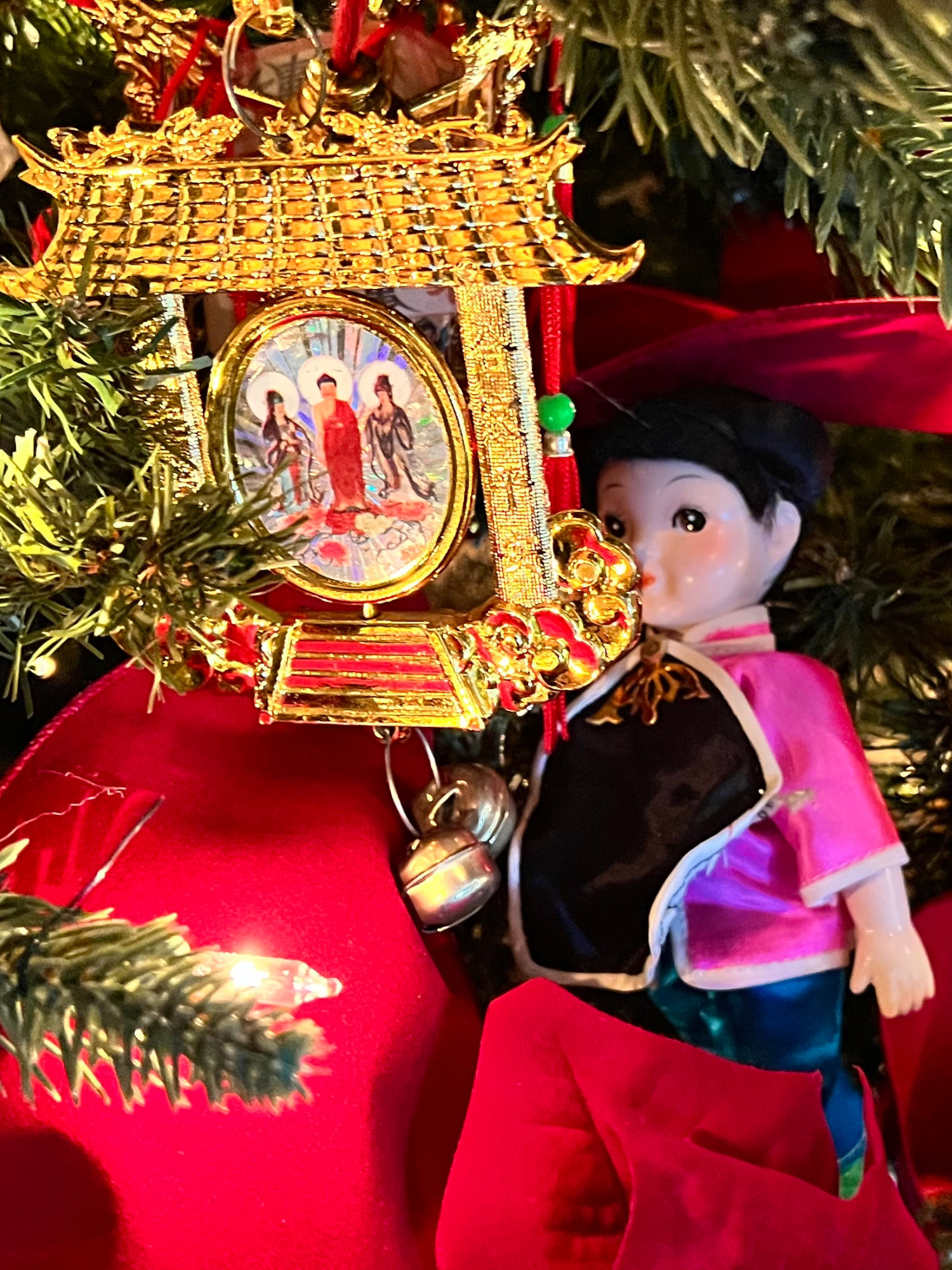


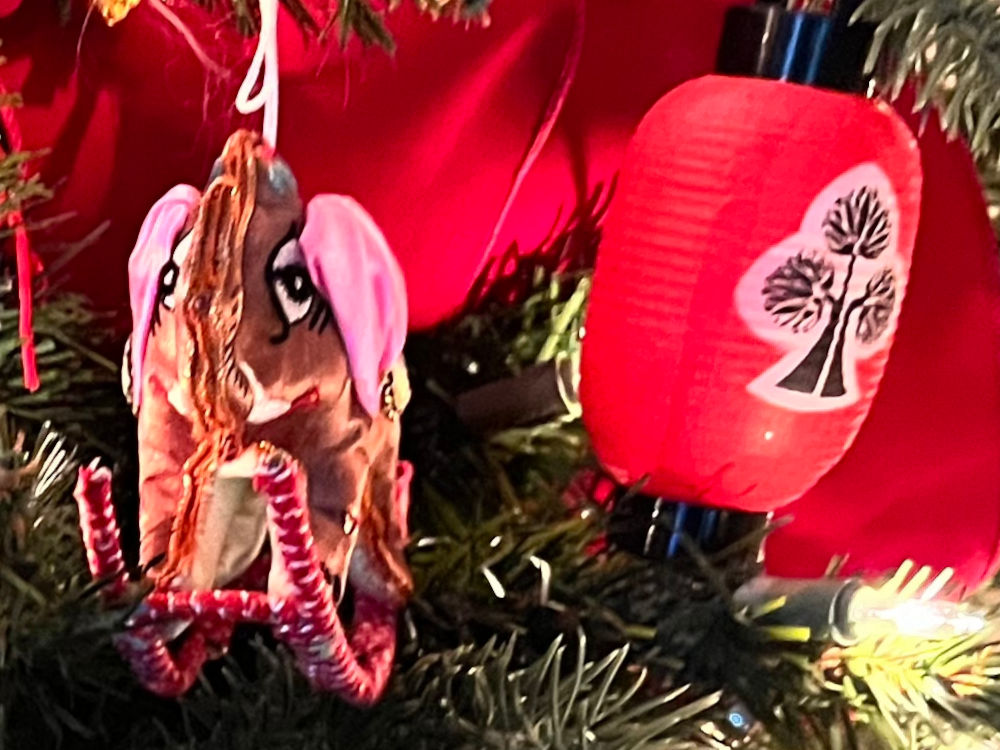
WORLD HOLIDAY TRADITIONSHoliday Traditions of China
China's small population of Christians call Christmas Sheng Dan Jieh, or Holy Birth Festival. They decorate their homes with evergreen plants, posters, bright paper chains, and a Christmas tree, which they call a Tree of Light, adorned with paper lanterns, flowers, and red paper chains that symbolize happiness. They cut out red pagodas to paste on their windows and light their houses with paper lanterns.In China, Santa Claus is known as Sheng Dan Lao Ren, Old Christmas Man, or Lan Khoong-Khoong, Nice Old Father. On Christmas Eve, children hang up their muslin stockings so Santa can fill them with gifts.
Christmas is mostly celebrated in major cities like Beijing, Shanghai, and Hong Kong, which are decorated with festive Christmas trees, colored lights, garlands and wreaths, and other decorations around the holiday season. Many young Chinese will attend Christmas parties, and young couples will give each other gifts, like on Valentine's day. Others celebrate with a big Christmas dinner at a restaurant.
In Hong Kong, people also celebrate Ta Chiu around this time, a festival of renewal and peace. They make offerings to saints and read the names of everybody who lives in the area.
Another tradition that's becoming popular is giving apples on Christmas Eve, because in Chinese, Christmas Eve is called Ping'an Ye, meaning peaceful or quiet evening, and the Mandarin word for apple is pingguo, which sounds like the word for peace.
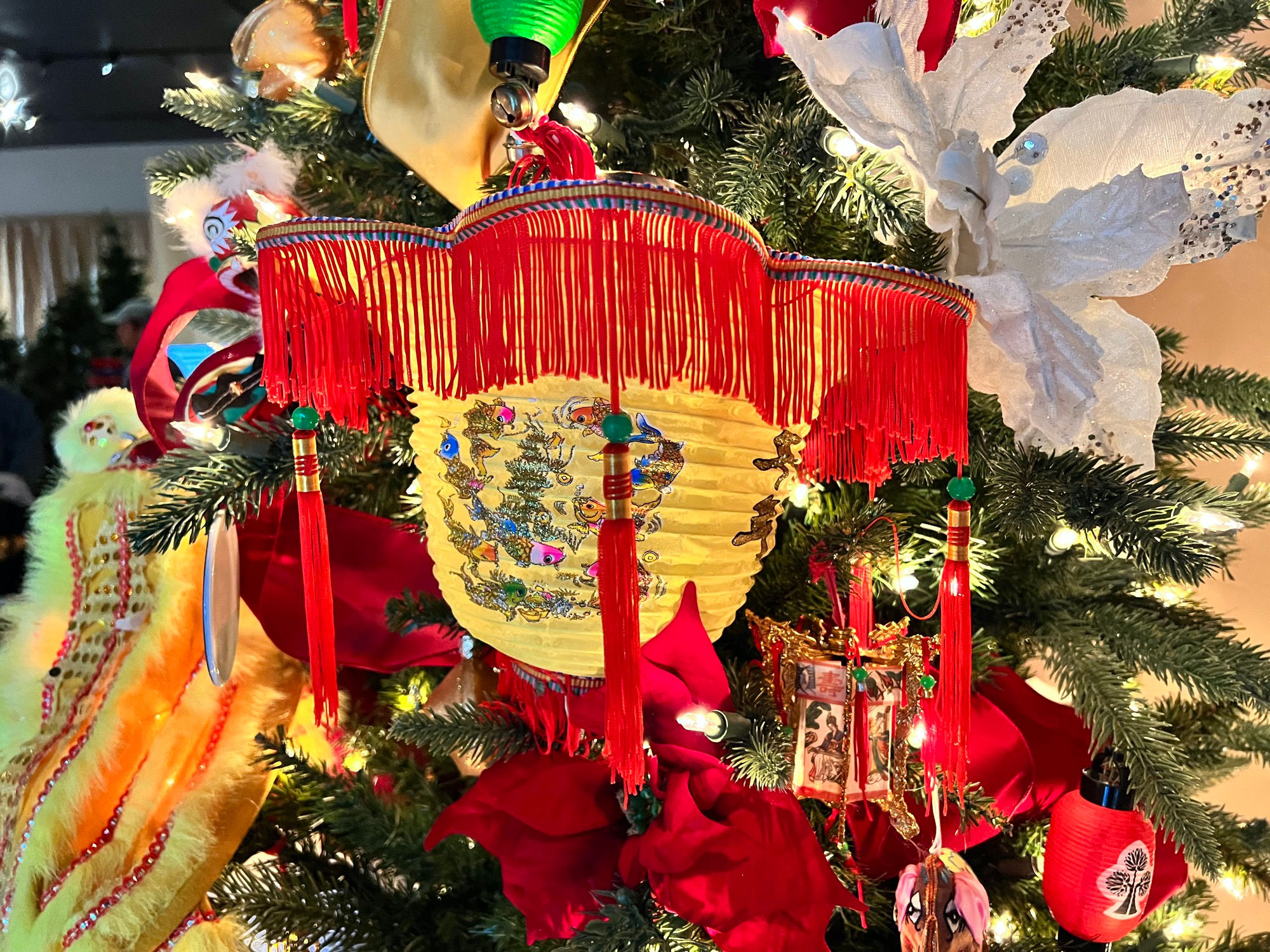
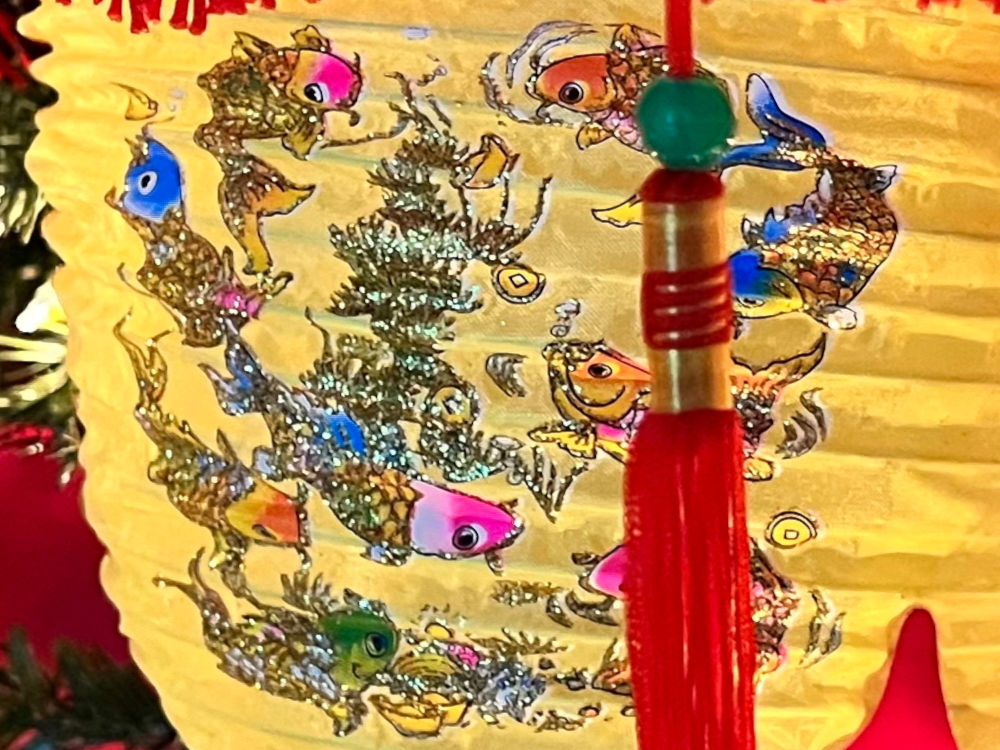


Culture TripHow Does China Celebrate Christmas?
Unlike in Western countries, where Christmas is celebrated seriously by Christians to commemorate the birth of Jesus Christ, in China, a country where only an estimated 5% of its population are Christians, the festival is observed in a more commercial way. With an increasing number of Chinese people starting to celebrate Christmas in recent years, some China-only Christmas rituals were created as well.Giving apples to the apples of your eye
Forget about roast turkey, mince pies or mulled wine, in China the official Christmas food is the apple, or more specifically, an apple wrapped in fancy packaging. It’s a myth how the trend started, but a lot of Chinese people believe that it’s a tradition to give apples to their loved ones on Christmas Eve. While Christmas Eve is widely known as ‘平安夜’ (Ping An Ye, Silent Night in English) in China, thanks to the German Christmas carol ‘Stille Nacht’, and apple in Chinese is ‘苹果 Ping Guo’, the Chinese took advantage of the homophony between two words and endowed the Christmas Eve apple with a good blessing.Christmas is another good excuse for shopping
Unlike in Western countries, where the streets are empty on Christmas Day, in China the streets are more packed than usual during Christmas, because that’s when the shops all give tempting discounts. Some restaurants offer special Christmas meals, too, but it’s more of a commercial gimmick instead of a tradition. It has become a China-special phenomenon that Western festivals are celebrated as shopping carnivals, be it Christmas, Valentine’s Day or Thanksgiving.It’s no Christmas without watching Love Actually.
Richard Curtis’s 2003 romantic comedy that brings together UK’s most shining stars is deemed as a Christmas classic worldwide, including China. It’s favored especially by young people with a certain level of English literacy. They have watched the film multiple times, but still treasure it dearly on their computers so that they can continue watching it every Christmas. ‘It’s no Christmas without watching Love Actually’ is one of their life mottos.Going to churches just for fun
During Christmas, the Christian churches in China, both state-run and underground, hold Christmas carol services that are free to the public. Despite the fact that these churches are open to the public on ordinary days, the self-claimed atheists and non-believers only have interest in the church during Christmas. You will see long lines in front of the famous churches in the cities, though some are just waiting in vain because many churches do ticketing during Christmas.Christmas par-tays, everyone!
More Chinese are coming home after going to universities abroad, bringing back Western traditions, and with more expats settling down in China, Christmas is increasingly celebrated in similar ways to Western countries. Take this year’s Christmas parties in Beijing, for example, there are orthodox gatherings, as well as various theme parties like the Ugly Christmas Sweater Party, Christmas Market, and Christmas special movie screenings, where classics like Miracle on 34th Street will be shown.


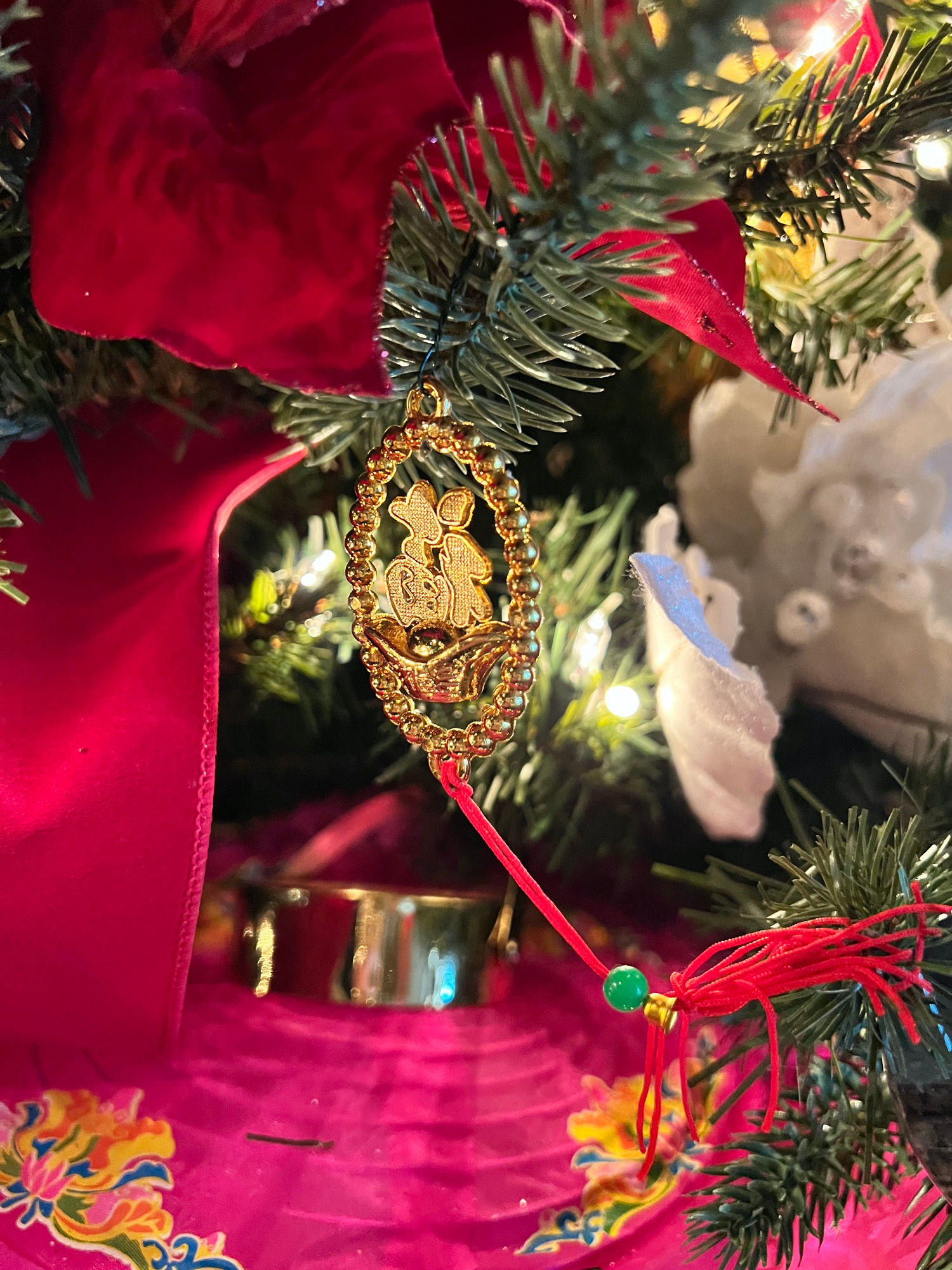
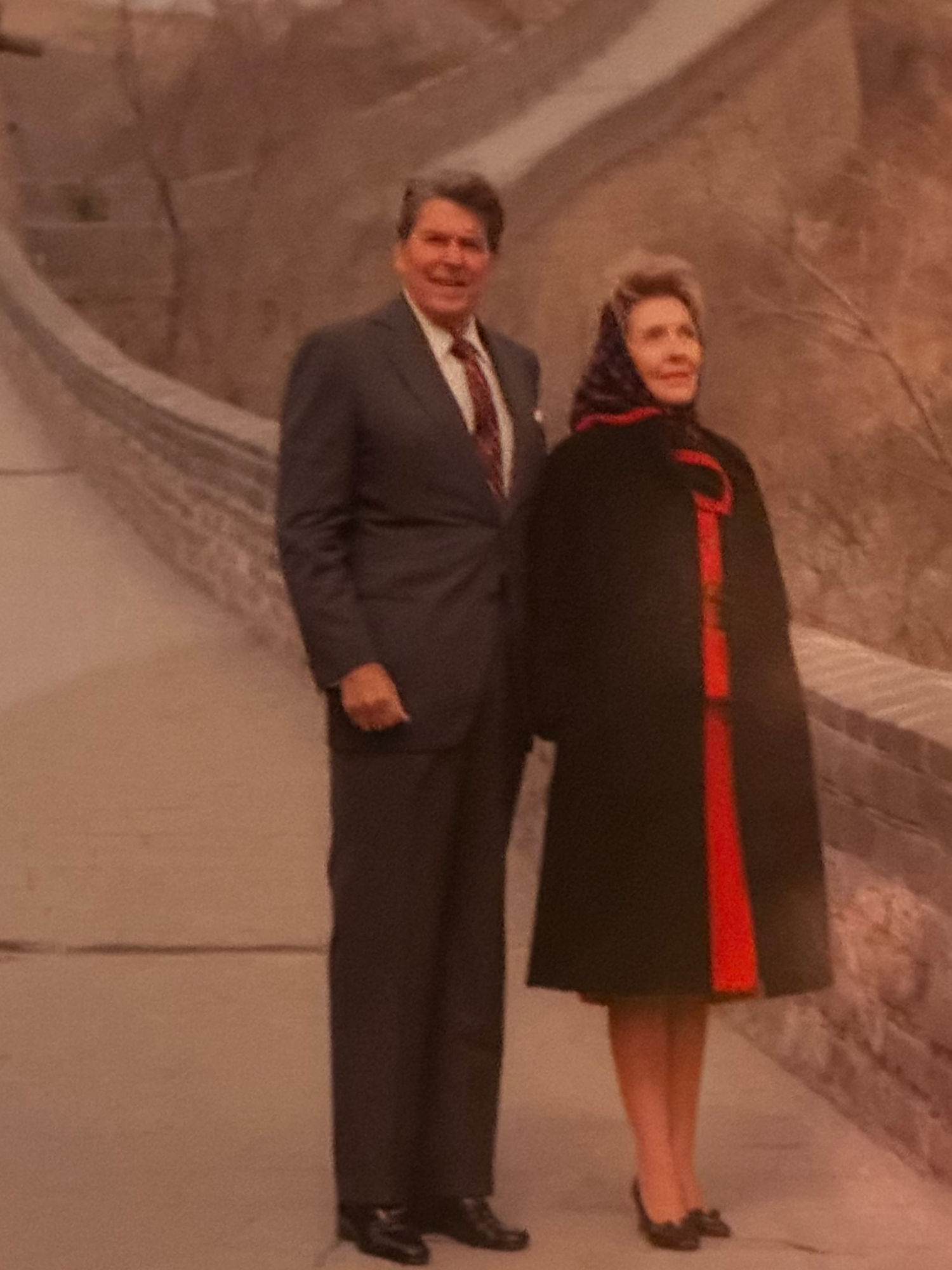
From April 26 - May 1, President Reagan visited China where they say, Sheng Tan Kuai Lob or Sing Dan Fai Lo!
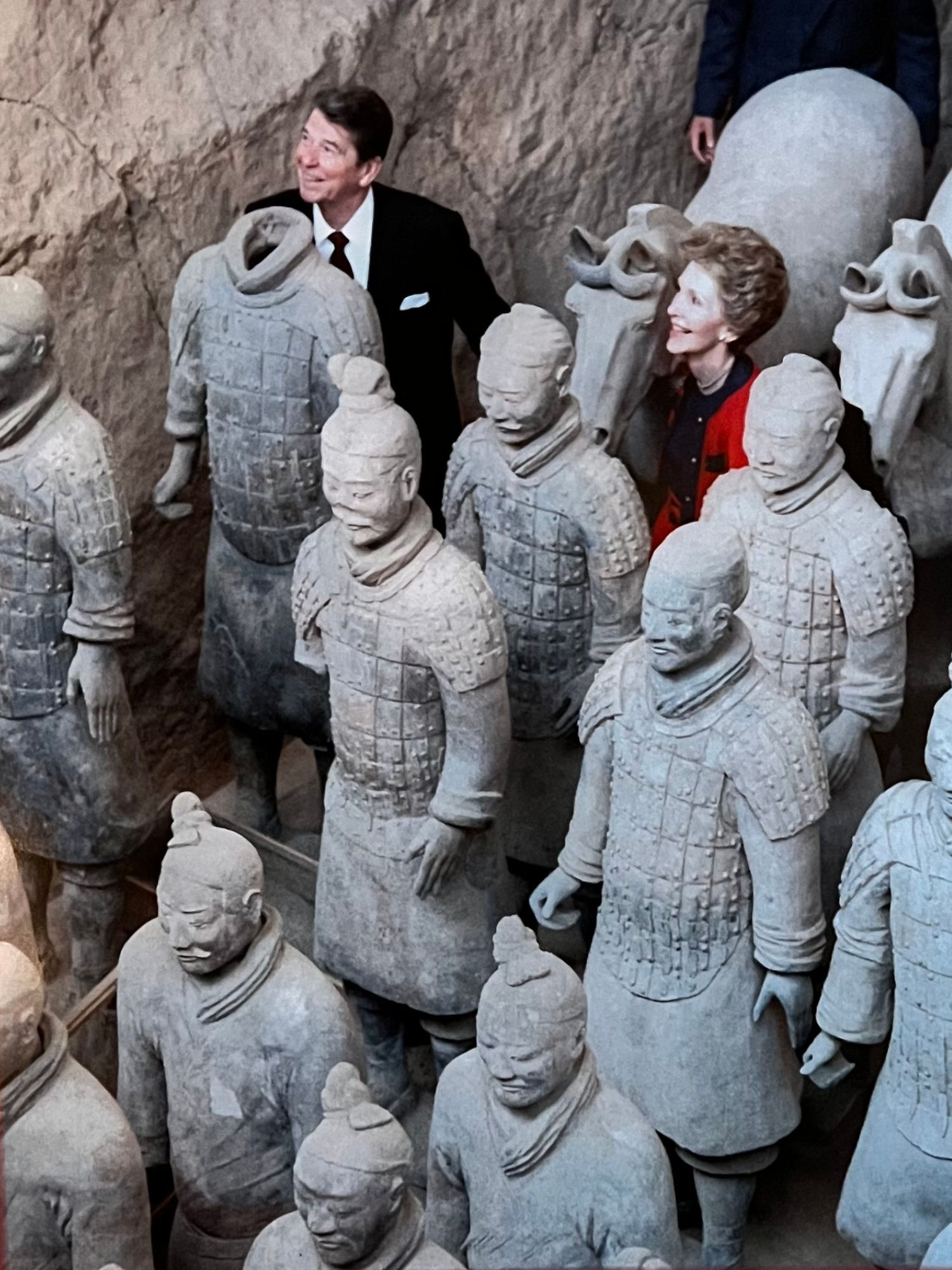
During a State visit, President Reagan and Mrs. Reagan tour the Terracotta Army Exhibition Hall and Qin Shi Huang Archaeological finds in Xian, China.
Reagan's Daily DiarySunday, April 29, 1984
This was our tourist day. We flew in A.F.1 to Xian the ancient capital of China. Then an hour & a half drive to the tomb of the 1st Emperor. This is the great excavation scene where they have uncovered 800 life size Terra Cotta figures of soldiers standing in ranks complete with horses & chariots guarding the Emperor’s tomb. They know there are more than 7000 they haven’t uncovered yet. It is an unforgettable experience. This plus the drive past villages surrounded by endless wheat fields dotted here & there with burial mounds & relics of Chinas ancient past-made for a day we’ll long remember. Before we left they had set up an example of a free market. We wanted to see the real thing because it’s part of their departure from communism-individuals selling their wares in the open market for profit. The Chinese said no-for security reasons so they set up a temporary one at the museum locale. Nancy bought some decorative items for our Xmas tree. There was an incident-her bill came to 5 Yuan ($2.50). The poor gal selling didn’t have any change. I’m aware there is no tipping in China but she was so embarrassed and looking to others for help. I said "keep it," & we moved on. She caught up with us & gave me the change she’d gotten from someone for the 10 Yuan note I’d given her. Our T.V. press made a big thing of it-that I had committed a blunder & tried to tip her. Then back to Beijing & our last night at Diaoyutai.Key Facts
- The President and First Lady take Air Force One to Xian, the ancient capital of China, and visit the tomb of the first emperor.
- The President and First Lady tour the excavation site holding the 800 life-size Terra Cotta soldiers guarding the emperor of China's tomb.
Ronald ReaganRadio Address to the Nation on the Trip to ChinaApril 28, 1984
My fellow Americans:
I'm sure you've heard that Nancy and I are traveling a long way from home this week. We've already flown more than 9,000 miles, stopping off in the beautiful islands of Hawaii to visit the citizens of our 50th State; and then across the International Dateline to Guam, where the rays of each sunrise first touch the Stars and Stripes; and then on to our primary destination, China, one of the world's oldest civilizations and a country of great importance in today's Pacific community of nations.
This is our second trip to Asia in the last 6 months. It demonstrates our awareness of America's responsibility as a Pacific leader in the search for regional security and economic well-being. The stability and prosperity of this region are of crucial importance to the United States. The nations comprising the Pacific Basin represent our fastest growing trading markets. Many say that the 21st century will be the century of the Pacific.
Our relations with China have continued to develop through the last four administrations, ever since President Nixon made his historic journey here in 1972. In 1978 the Chinese leadership decided to chart a new course for their country, permitting more economic freedom for the people in an effort to modernize their economy. Not surprisingly, the results have been positive.
Today China's efforts to modernize, foster the spirit of enterprise, open its doors to the West, and expand areas of mutual cooperation while opposing Soviet aggression make it a nation of increasing importance to America and to prospects for peace and prosperity in the Pacific.
When Nancy and I arrived in Beijing, we were touched by the friendly hospitality of the Chinese people, and we've been delighted to see the sweeping vistas, the bustling activity, and the many hallmarks of history in this great, old city.
In Beijing, narrow residential streets, traditional one-story houses, and treasures like the Forbidden City, a former Imperial Palace, first erected in 1420, are interspersed with modern highrises and wide avenues. The streets are normally filled with people riding bicycles. All of you who like bikeriding would love Beijing.
From the first moment, our schedule has been fully packed. I've already had extensive meetings with the Chinese leaders -- President Li, Prime Minister Zhao, General Secretary Hu, and Chairman Deng. I had the honor of addressing a large group of Chinese and American leaders in science and industry in the Great Hall of the People, and I've spoken to the people of China over Chinese television.
We've also squeezed in some side trips -- first, to the magnificent Great Wall, built by the Chinese more than 2,000 years ago to protect their country from outside invaders; and tomorrow, to the ancient city of Xi'an, an archeological treasure considered the cradle of Chinese civilization and located in a fertile plain near the Yellow River.
In all of our meetings and appearances, I've stressed one overriding point -- different as to our two forms of government -- different as they may be, the common interests that bind our two peoples are even greater. Namely, our determination to build a better life and to resist aggressors who violate the rights of law-abiding nations and endanger world peace.
When people have the opportunity to communicate, cooperate, and engage in commerce, they can often produce astonishing results. We've already agreed to cooperate more closely in the areas of trade, technology, investment, and exchange of scientific and managerial expertise. And we've reached an important agreement on the peaceful uses of nuclear energy for economic development.
Our last stop in China will be Shanghai, a center of culture and commerce. We plan to visit the Shanghai Foxboro Company, where Americans and Chinese are making high technology equipment to help advance China's industries. And I'll also visit with the students at Fudan University and speak to them about the meaning of America, the challenges our people face, and the dreams we share.
We can learn much from the rich history of China and from the wisdom and character of her people. And I've told the Chinese that Americans are people of peace, filled with the spirit of innovation and a passion for progress to make tomorrow better than today.
Our two nations are poised to take an historic step forward on the path of peaceful cooperation and economic development. I'm confident that our trip will be a significant success, resulting in a stronger U.S.-China relationship than before. For Americans, this will mean more jobs and a better chance for a peaceful world.
Until next week, thanks for listening, and God bless you.
NOTEThe President recorded his address at the Diaoyutai State Guest House on Saturday, April 28, Beijing time, for broadcast on Saturday, April 28, in the United States.As printed above, this item follows the text of the White House press release, which was released by the Office of the Press Secretary in Beijing on April 29.
WIKIPEDIAThe People's Republic of China
A country in East Asia. It is the world's second-most-populous country, with a population exceeding 1.4 billion. China spans the equivalent of five time zones and borders fourteen countries by land, tied with Russia as having the most of any country. With an area of nearly 3,700,000 square miles, it is the third-largest country by total land area. The country is divided into 22 provinces, five autonomous regions, four municipalities, and two semi-autonomous special administrative regions. Beijing is the national capital, while Shanghai is the most populous city and largest financial center.The region has been inhabited since the Paleolithic era. The earliest Chinese dynastic states, such as the Shang and the Zhou, emerged in the basin of the Yellow River before the late second millennium BCE. The eighth to third centuries BCE saw a breakdown in Zhou authority and significant conflict, as well as the emergence of Classical Chinese literature and philosophy. In 221 BCE, China was unified under an emperor for the first time, ushering in more than two millennia in which China was governed by one or more imperial dynasties, including the Han, Tang, Ming, and Qing. Some of China's most notable achievements-such as the invention of gunpowder and paper, the establishment of the Silk Road, and the building of the Great Wall-occurred during this period. The imperial Chinese culture-including languages, traditions, architecture, philosophy and more-has heavily influenced East Asia.
In 1912, the monarchy was overthrown and the Republic of China was established. The Republic saw consistent conflict for most of the mid-20th century, including a civil war between the Kuomintang government and the Chinese Communist Party (CCP), which began in 1927, as well as the Second Sino-Japanese War that began in 1937 and continued until 1945, therefore becoming involved in World War II. The latter led to a temporary stop in the civil war and numerous Japanese atrocities such as the Nanjing Massacre, which continue to influence China–Japan relations. In 1949, the CCP established control over China as the Kuomintang fled to Taiwan. Early communist rule saw two major projects: the Great Leap Forward, which resulted in a sharp economic decline and massive famine; and the Cultural Revolution, a movement to purge all non-communist elements of Chinese society that led to mass violence and persecution. Beginning in 1978, the Chinese government launched economic reforms that moved the country away from planned economics, but political reforms were cut short by the 1989 Tiananmen Square protests and massacre. Economic reform continued to strengthen the nation's economy in the following decades while raising China's standard of living significantly.
China is a unitary one-party socialist republic led by the CCP. It is one of the five permanent members of the UN Security Council and a founding member of several multilateral and regional organizations such as the Asian Infrastructure Investment Bank, the Silk Road Fund, the New Development Bank, and the RCEP. It is a member of the BRICS, the G20, APEC, the SCO, and the East Asia Summit. China ranks poorly in measures of democracy, transparency, and human rights, including for press freedom, religious freedom, and ethnic equality. Making up around one-fifth of the world economy, China is the world's largest economy by GDP at purchasing power parity, the second-largest economy by nominal GDP, and the second-wealthiest country. The country is one of the fastest-growing major economies and is the world's largest manufacturer and exporter, as well as the second-largest importer. China is a nuclear-weapon state with the world's largest standing army by military personnel and the second-largest defense budget.
EtymologyThe word "China" has been used in English since the 16th century; however, it was not used by the Chinese themselves during this period. Its origin has been traced through Portuguese, Malay, and Persian back to the Sanskrit word Cina, used in ancient India.


